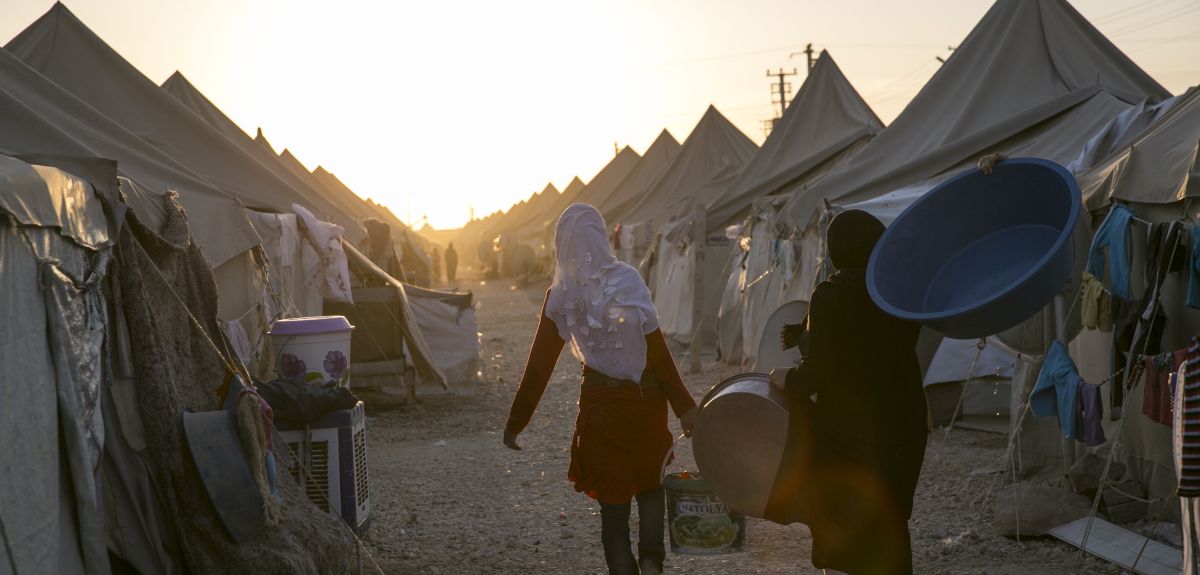
Image credit: Shutterstock
The unique issues facing women refugees in the UK
A series of events continues this week that aims to generate dialogue around the issues facing refugees in the UK.
Initiated by Baroness Jan Royall, Principal of Oxford’s Somerville College, the series has engaged policymakers, academics, charities, students and members of the Oxford community with this important topic.
The series began with a panel discussion focusing on child refugees and access to education, and will continue tomorrow (Wednesday 20 June) with an event centred around women refugees. The event will feature not only a panel discussion but a special performance of a new composition by composer Sadie Harrison, set to a poem titled My Hazara People by Shukria Reazei, a young Afghan refugee and recent former pupil of Oxford Spires Academy secondary school.
It is the first product of a growing collaboration between the travelling, community-focused Orchestra of St John’s and the Oxford Spires poetry programme run by the poet Kate Clanchy.
The event is free and open to the public, and registration information can be found here.
Co-organiser Dr Cayenna Ponchione-Bailey, a postdoctoral researcher in music at Somerville and Oxford’s Music Faculty, and associate conductor of the Orchestra of St John’s, said: ‘One of the aims of the Orchestra of St John’s “Displaced Voices” project is to amplify the voices of refugees by setting their words to music and creating opportunities for public performance. Setting a text to music does more than just create a venue for it to be heard: it adds a new dimension to the work – additional layers of meaning – by weaving in the perspectives of the composer and the performer.
‘Projects such as these that create and even magnify the constellations of cultural backgrounds and power relations between composer, poet, performers and audience members require conscientious navigation of the difficult space between collaboration and appropriation. Yet it is specifically these interstices that afford the possibilities for fruitful intercultural dialogue and warrant continued exploration.’
This week’s event will focus on the unique issues facing women refugees in this country. Chairing the panel discussion will be Baroness Royall, with contributions from Councillor Peymana Assad (Harrow Council), Fatou Ceesay (Refugee Resource, Oxford), Councillor Shaista Aziz (Oxford City Council), and Catherine Briddick (Law Faculty and Refugee Studies Centre, University of Oxford). A reception following the discussion and performance will feature food prepared by the women’s group at Refugee Resource, Oxford.
Catherine Briddick said: ‘Refugee women face legal and other barriers when they seek to access, receive and then benefit from international protection.
‘Asylum’s “proximity bias” – that it is only available to those who are able to leave their own state and enter one that provides protection – has meant that women have found it significantly harder than men to seek, never mind obtain, international protection. Less than one-third of protection-seekers in Europe, for example, are women, although this proportion is increasing.
‘When women do seek international protection they face ever more dangerous and illegal journeys, with women at particular and heightened risk of experiencing violence, including fatal violence.’
She added: ‘Once in the UK, women seeking protection must navigate a complex asylum system, often without having received appropriate advice and support. For example, a woman must explain why she fears persecution or harm in her country of origin but might not disclose an experience of gender-based violence if she is not given the proper opportunity to do so.
‘And the problems faced by refugee women do not end with recognition as a refugee or the granting of some other form of protection: issues and hardships include dependency on a husband’s asylum claim, separation from family members, and difficulty accessing language courses, as well as various types of prejudice.’
There will be one further panel discussion exploring the issues facing refugees held in the coming months, with the specific topic yet to be announced.
Wednesday’s panel discussion, reception and accompanying performance are supported by Somerville College, the Orchestra of St John’s and The Oxford Research Centre in the Humanities (TORCH).